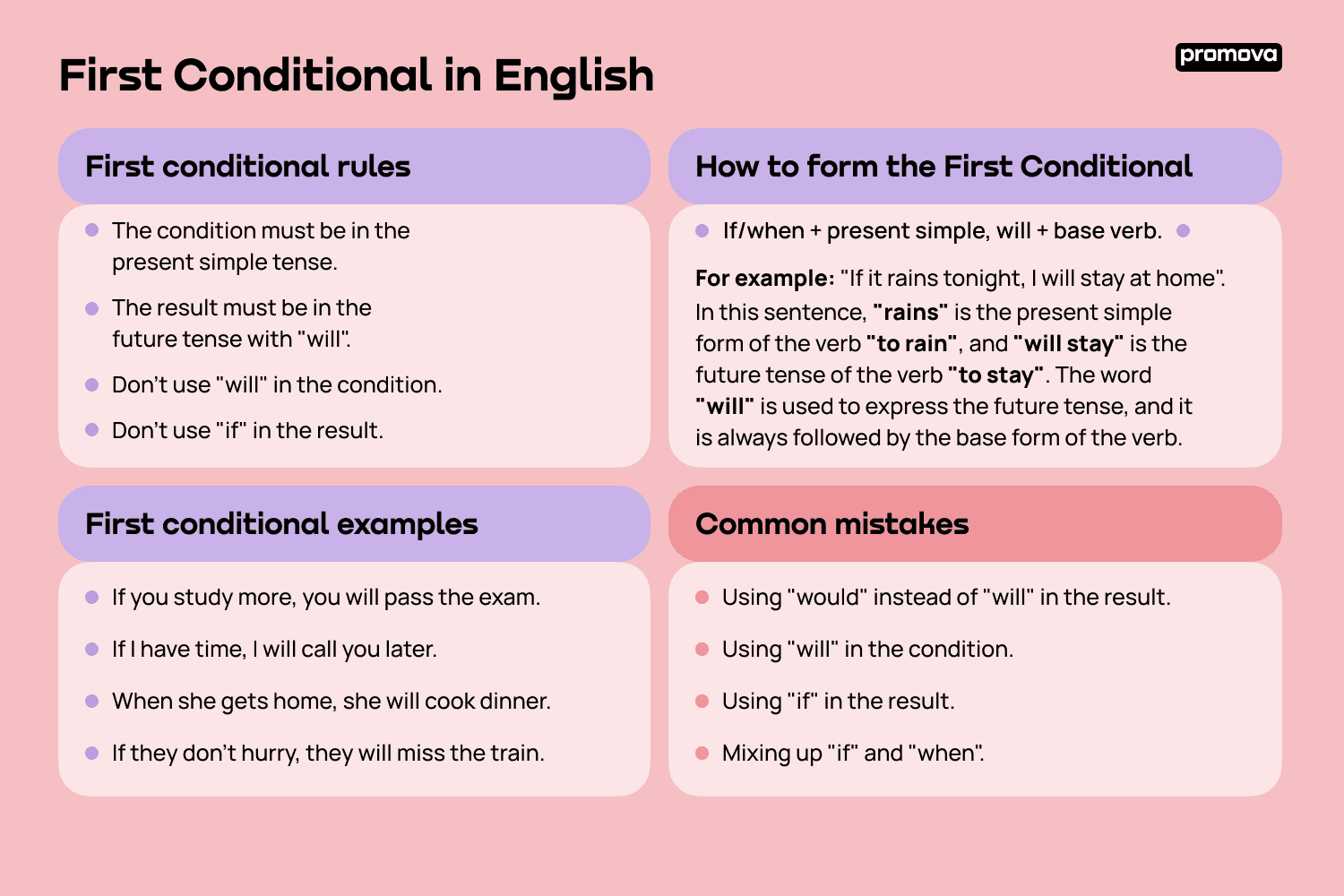First conditional sentences are used to talk about real or possible situations in the future. They consist of two parts: the if-clause (conditional clause) and the result clause. The if-clause expresses the condition that must be met, while the result clause expresses the consequence of that condition being met. These sentences are commonly used in everyday conversations and are important for expressing future possibilities.
Using the first conditional correctly can help you communicate effectively and make plans for the future. It is important to understand how to structure these sentences in order to convey your thoughts clearly and accurately.
Examples of 1st Conditional Sentences
1. If it rains tomorrow, we will stay indoors and watch movies.
In this example, the if-clause is “If it rains tomorrow,” which is the condition that must be met. The result clause is “we will stay indoors and watch movies,” which is the consequence of the condition being met. This sentence expresses a real possibility for the future based on the condition of rain.
2. If she studies hard, she will pass her exams with flying colors.
Here, the if-clause is “If she studies hard,” indicating the condition that must be met. The result clause is “she will pass her exams with flying colors,” showing the consequence of studying hard. This sentence highlights the potential outcome of hard work and dedication.
3. If you leave now, you will catch the last train home.
In this example, the if-clause is “If you leave now,” which is the condition to be met. The result clause is “you will catch the last train home,” which is the consequence of leaving on time. This sentence emphasizes the importance of timing and the impact it can have on future events.
4. If they don’t hurry, they will miss the opening act of the concert.
Here, the if-clause is “If they don’t hurry,” indicating the condition that must be met. The result clause is “they will miss the opening act of the concert,” showing the consequence of not hurrying. This sentence underscores the need for prompt action to avoid missing out on opportunities.
5. If he eats too much, he will feel sick later.
In this example, the if-clause is “If he eats too much,” which is the condition to be met. The result clause is “he will feel sick later,” indicating the consequence of overeating. This sentence serves as a reminder of the potential consequences of certain actions.
Overall, mastering the first conditional can greatly enhance your ability to communicate effectively and express future possibilities. By understanding how to structure these sentences and using them in appropriate contexts, you can convey your thoughts clearly and accurately.
